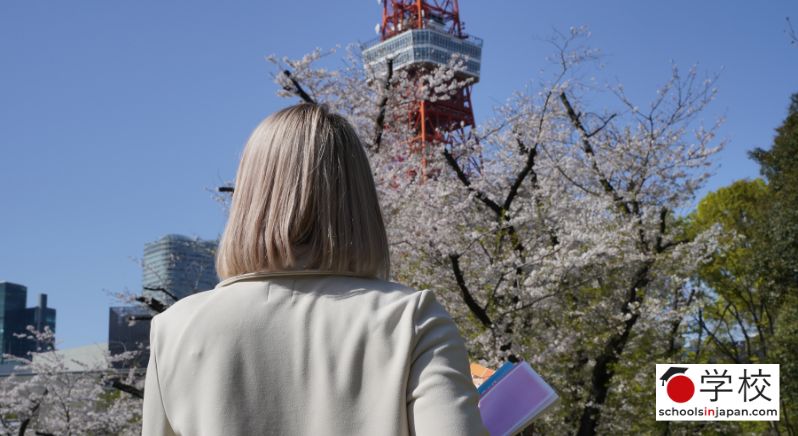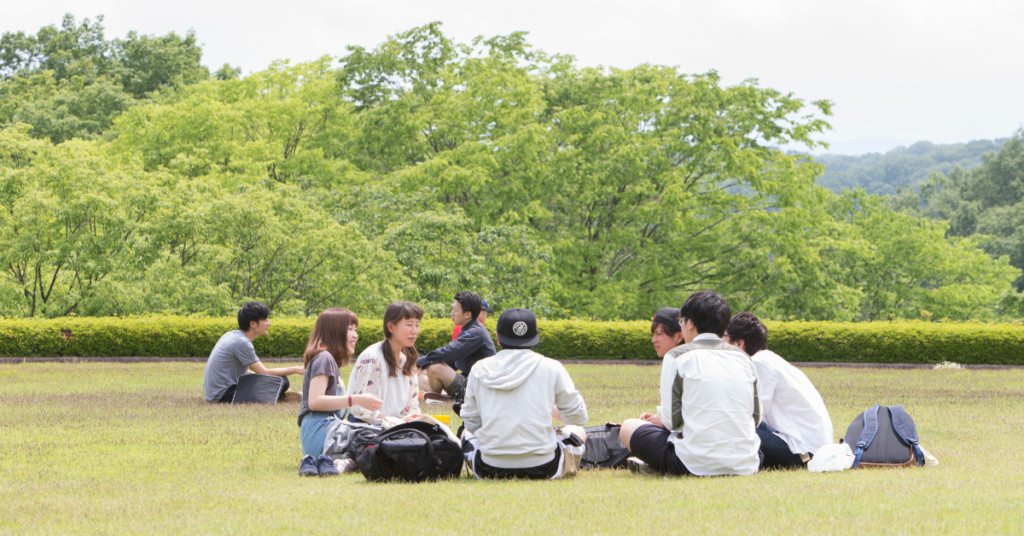Japan has some of the world’s most prestigious universities that attract students from across the globe. Whether international students want to study engineering, business, or the arts, there is a university in Japan that offers programs. So how can students choose a university in Japan?
Choosing the right university or knowing where to start finding the perfect school can be challenging. This article covers key factors international students should consider, such as language requirements, location, tuition costs, academic programs, and more.

Language requirements to enter a Japanese university
One of the first things to consider when you choose a university in Japan is the language requirements for admission. Most universities offer courses in Japanese, but some provide programs in English called E-track. To enroll in a Japanese-taught program, students typically need to pass the Japanese Language Proficiency Test (JLPT) at N2 or N1 level before applying. Some universities may also require students to take the Examination for Japanese University Admission for International Students (EJU), which assesses Japanese language ability, science, and mathematics skills.
For students who prefer English taught programs, universities like Temple University, Japan campus, Hosei University, and more offer international programs with E-track courses. Checking the language requirements early will help you choose a university in Japan that is best for you.
University location
Japan has universities spread across different regions that all offer unique experiences. Choosing where to study depends on the type of lifestyle, career goals, and personal preferences you have for life in Japan.
- Tokyo: The capital city is home to top-ranked universities. It provides the best job opportunities but comes with a high cost of living.
- Osaka & Kyoto: These cities offer a mix of modern and traditional Japan and have many respected universities.
- Smaller Cities: If you prefer a quieter lifestyle, universities in Fukuoka, Sendai, or Sapporo may be a better fit. These cities tend to have lower living costs while still offering quality education.
The location also impacts part-time job availability and internship opportunities, so consider your long-term goals when making a choice.
Tuition costs at national, public, and private universities
The cost is a significant factor when you choose a university in Japan. There are three main types of universities: national, public, and private.
- National Universities: Funded by the government, these universities offer lower tuition fees. The average annual tuition is around 535,800 JPY (about $3,500 USD).
- Public Universities: Run by local governments, public universities have slightly higher tuition fees than national ones but remain affordable.
- Private Universities: These are the most expensive, with tuition fees ranging from 800,000 JPY to over 2,000,000 JPY ($5,000 – $14,000 USD) per year.
Students can also apply for scholarships such as the MEXT Scholarship or private scholarships offered by organizations like JASSO.
Choosing the right academic program
When you choose a university in Japan, make sure it offers the program you want to study. Japan leads in fields such as engineering, robotics, international relations, and business. Some universities have strong partnerships with companies, offering better internship opportunities and job placement after graduation, which can be crucial if your goal is to work in Japan after graduation.
Other important factors to consider
Campus culture and student support
Some universities have a strong international student community, while others have fewer foreign students. Look for universities that offer support services, such as Japanese language courses, career counseling, and dormitory assistance.
Admission process and deadlines
Application processes and timelines vary by university and don’t always align with admissions and graduation dates in your home country. Some require entrance exams, while others accept applications based on high school grades and language proficiency. Make sure to check application deadlines, as they may differ between spring and fall admissions, and you might miss out on your opportunity to apply.

Need more advice to choose a university in Japan?
Choosing a university in Japan is a big decision that requires careful consideration. Pay attention to language requirements, location, tuition costs, academic programs, and student support services. Check out our universities page and reach out to one of our partner universities in Japan to gain more insightful information for your choices.
By taking the time to research and prepare, you can find the right university that will shape your future in Japan.




